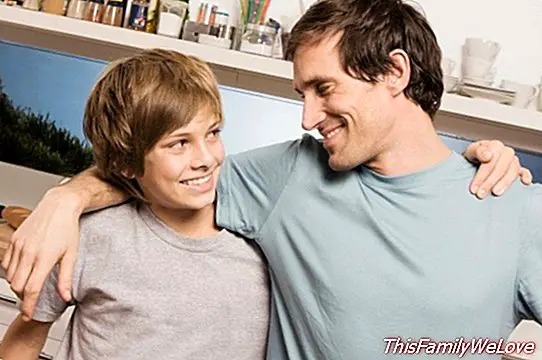How to talk to children about alcohol and at what ages

The alcohol It is one of the most harmful substances for young people. The organism of adolescents has not reached maturity and their bodies can suffer great consequences on a physical level. Therefore, the role of parents at this time is to talk with their children to know the dangers they face because of this consumption.
At what age do we have to start talking to them? What information should they be offered? From the National Institute on Alcohol Abuse and Alcoholism United States offers information on this. Tips to get young people to know what they are facing.
Understand your reasons
The first step to talking with the little ones about the dangers of alcohol is understand what leads them to drink and participate in these activities. As children mature, they usually want greater independence, they also have a sense of invulnerability that makes them look for risks by understanding that nothing can happen to them.
The consumption of alcohol among minors is a risk that attracts many teenagers. Many want to try alcohol, thinking that in this way they reaffirm their independence and "break the rules". Their false illusion of invulnerability often leads them to not fully recognize the effects on their health and behavior.
Other reasons for which young people drink alcohol include:
- Form of evasion of problems such as bullying or low self-esteem.
- Search for social acceptance
- Idealization of these drinks, they think they will be bigger or more popular because that is the image of these practices.
How to speak and from what age
The experts of this organism explain that although the talk about the effects of alcohol must be taken when entering the preadolescenceFrom an early age, this intake should not be seen as fun. The children learn by imitating, so the reference they make is that the abuse of these drinks will bring benefits.
In terms of how to approach alcohol, parents should have these attitudes Inside the house:
- Talk about the dangers of drinking. Both the direct consequences and the discomfort caused by the abuse as well as the loss of conscience and stomach pain, as well as the long term.
- Drink responsibly and always remembering children that it is something that only an adult can do.
- Do not give alcohol availability. The contact of many children with alcohol comes through their parents, who think for small sips nothing happens. But the message that is sent is that the intake of this drink by minors is acceptable.
- Have regular conversations about the children's lives. Alcohol can be a formula for escaping from problems. If parents detect them in adolescents, they can work to solve them from other perspectives.
- Encourage children to participate in healthy and fun activities that do not involve alcohol. Showing alternatives is a great idea.
Damián Montero




